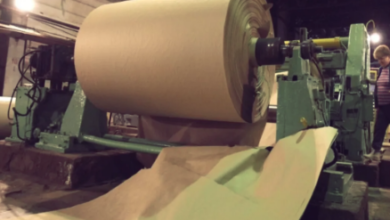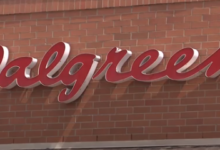Fridge Repairs Keeping Your Cool Appliances in Tip-Top Shape
Refrigerators are the unsung heroes of our kitchens, silently preserving our food and keeping it fresh. However, even these durable appliances can encounter issues, leaving us in a panic about the state of our groceries. In this article, we’ll explore the world of fridge repairs near me, guiding you through signs that your fridge may need attention, offering DIY troubleshooting tips, and explaining when it’s time to call in the professionals.
Table of Contents
I. Introduction
A. Importance of a functional fridge
A fully functional refrigerator is crucial for preserving the freshness of our perishables. From fruits and vegetables to dairy and meats, a working fridge ensures that our food remains safe for consumption.
B. Common issues with fridges
Fridges can encounter various issues over time, such as strange noises, leaks, inconsistent temperatures, and frost buildup. Addressing these problems promptly can extend the lifespan of your appliance and prevent food spoilage.
II. Signs Your Fridge Needs Repair
A. Odd noises
If your fridge starts making unusual sounds like banging, humming, or rattling, it’s a clear sign that something may be amiss. Ignoring these noises could lead to more significant problems down the line.
B. Leaks and puddles
Finding puddles around your fridge can indicate a leak, either from the water dispenser or a more serious issue. Addressing leaks promptly is essential to prevent water damage and mold growth.
C. Inconsistent temperature
A fridge that can’t maintain a consistent temperature may cause your food to spoil prematurely. Checking the thermostat settings and ensuring proper ventilation can help troubleshoot this problem.
D. Frost buildup
Excessive frost inside the freezer can affect the efficiency of your fridge. Regularly defrosting and checking the door seal can prevent this issue.
III. DIY Fridge Troubleshooting
A. Checking power supply
Before panicking about a malfunctioning fridge, ensure that it’s receiving power. Verify the power cord, circuit breaker, and outlet to rule out electrical issues.
B. Cleaning coils
Dirty coils can hinder the cooling efficiency of your fridge. Regularly vacuuming or brushing the coils beneath or behind the appliance can improve performance.
C. Adjusting thermostat settings
Incorrect thermostat settings may lead to temperature inconsistencies. Refer to your fridge’s manual to understand the optimal temperature settings for different compartments.
IV. When to Call a Professional
A. Complex issues
If DIY troubleshooting doesn’t resolve the problem or if you’re dealing with complex technical issues, it’s time to seek professional help.
B. Warranty considerations
Check your fridge’s warranty before attempting repairs. Some repairs may void the warranty, so it’s essential to know your appliance’s coverage.
C. Safety concerns
If you notice any electrical issues or suspect a gas leak, prioritize safety and contact a professional immediately.
V. Benefits of Timely Fridge Repairs
A. Energy efficiency
A well-maintained fridge operates more efficiently, saving energy and reducing your electricity bills.
B. Food safety
Timely repairs prevent food spoilage, ensuring that your groceries stay fresh for longer.
C. Cost savings
Addressing minor issues promptly can prevent major breakdowns, saving you money on extensive repairs or the need for a new fridge.
VI. Choosing the Right Fridge Repair Service
A. Reputation and reviews
Research local repair services, considering customer reviews and testimonials to gauge their reputation.
B. Certification and experience
Choose a repair service with certified technicians and extensive experience in handling your specific fridge brand and model.
C. Cost considerations
While cost is a factor, prioritize quality service over the cheapest option. A reliable repair service may save you money in the long run.
VII. Preventive Maintenance Tips
A. Regular cleaning
Keep your fridge clean by regularly wiping down shelves, removing expired items, and cleaning spills promptly.
B. Temperature monitoring
Invest in a fridge thermometer to ensure that your appliance maintains the recommended temperature for food safety.
C. Door seal checks
Regularly inspect and clean the door seals to ensure a tight seal, preventing cold air from escaping and warm air from entering.
VIII. Conclusion
In conclusion, maintaining a well-functioning fridge is essential for preserving the freshness of your food and saving on energy costs. By recognizing the signs of fridge issues, performing basic troubleshooting, and seeking professional help when needed, you can ensure that your fridge serves you well for years to come.






